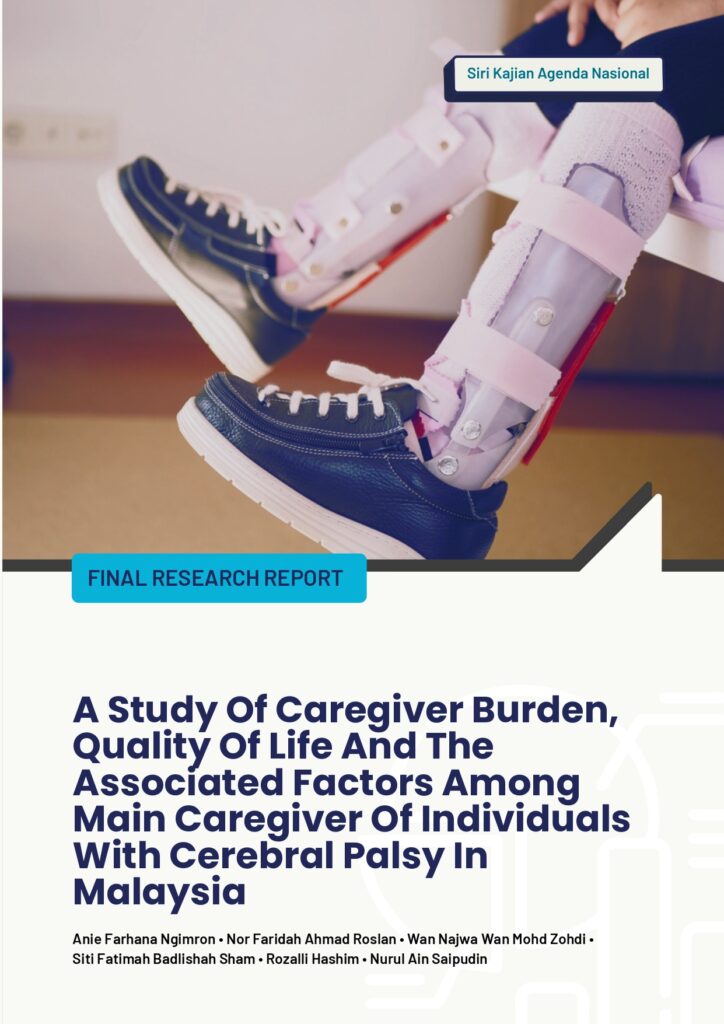Abstrak
Cerebral palsy (CP) is the leading cause of disability among children and a lifelong neurological condition that requires varying levels of assistance. The dependency towards the main caregiver is influenced by various demographic and social factors. Understanding the complex challenges faced by caregivers is crucial, as these may affect them from various perspectives, including socio-economic, emotional, and quality of life aspects. However, there is still limited research in Malaysia on the caregiving burden and the quality of life of main caregivers of individuals with CP. This study aimed to assess the level of caregiver burden, quality of life, and associated factors among main caregivers of individuals with CP in Malaysia. Utilizing a cross-sectional design, data were collected online from 175 caregivers through validated questionnaires, including the Malay Zarit Burden Interview (ZBI) and the WHOQOL-BREF questionnaire. Descriptive and inferential analyses explored socio-demographic profiles, specific characteristics of the caregivers and individuals with cerebral palsy, the level of caregiver burden, and quality of life, as well as their interrelations. The findings revealed that 57.1% of caregivers experienced mild to moderate burden. Quality of life among caregivers was moderate across all domains, with the social relations domain scoring the highest (M = 65.95) and the environmental domain scoring the lowest (M = 61.84). Significant predictors of caregiver burden included caregiver age, relationship to the individual with CP, and the presence of additional individuals with health issues in the household. Similarly, caregiver health status and regional disparities were identified as key factors affecting quality of life. A significant negative correlation (p < 0.01) was observed between caregiver burden and quality of life, indicating that higher burden levels were associated with diminished quality of life. Challenges in recruiting diverse participants and reliance on self-reported data were key limitations. The study’s cross-sectional design limited the ability to infer causality. Additionally, the limited sample diversity restricts the generalizability of findings to all caregivers in Malaysia. This study sheds light on the complex relationship between socio demographic factors, caregiver burden, and quality of life among caregivers of individuals with CP in Malaysia. Despite most participants being from B40 households, residing in Middle Zone of Malaysia and lacking financial aid, the overall caregiver burden was predominantly in the light-to-moderate range. Despite financial constraints, the role of non-monetary support systems in promoting caregiver well-being is evident. To build a comprehensive caregiver support framework and mechanism, stakeholders must prioritize addressing gaps in regional resources, policy implementation, and caregiver empowerment initiatives. Future studies should aim to integrate qualitative approaches for a more nuanced understanding of caregiver experiences and experts’ insights.
Senarai Penyelidik
Anie Farhana Ngimron • Nor Faridah Ahmad Roslan • Wan Najwa Wan Mohd Zohdi • Siti Fatimah Badlishah Sham • Rozalli Hashim • Nurul Ain Saipudin

